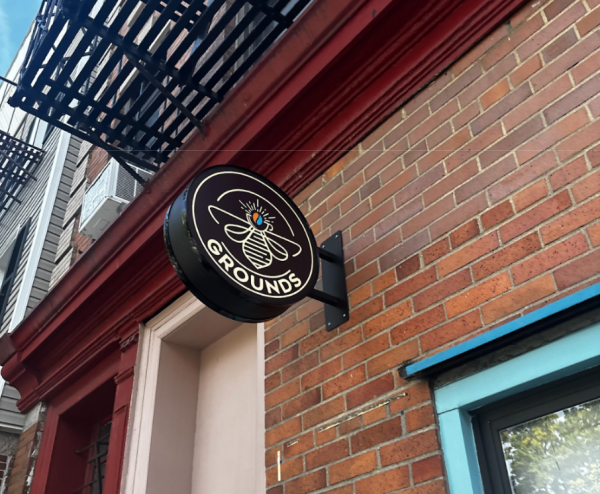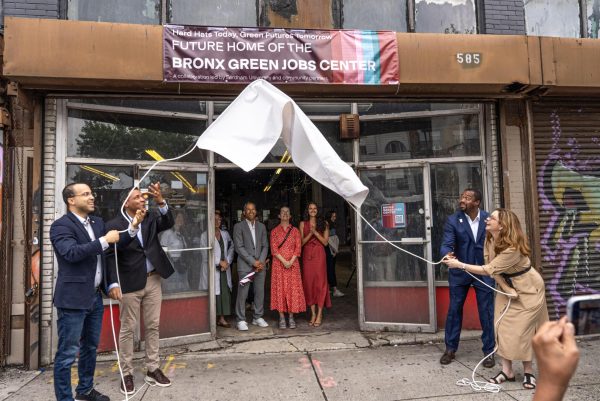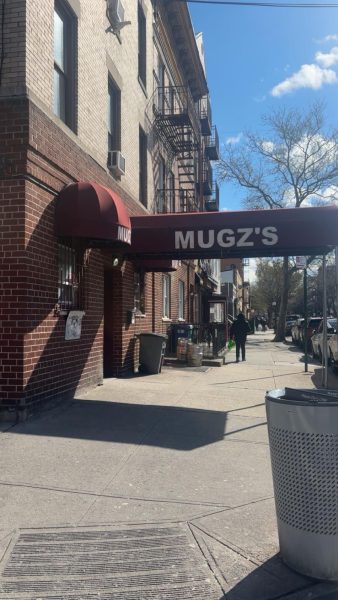Fordham Class Participates in Bedford Hills College Program
Students will travel from Fordham to the prison for class with the women who are incarcerated.
About 33 miles north of Fordham’s Rose Hill campus is a program designed to help women who are incarcerated at Bedford Hills Women’s Correctional Facility attain higher education. Fordham is set to join forces with the Bedford Program by launching a class in spring 2020.
The class will be taught by Fordham professor Anne Hoffman, Ph.D., and will operate as a part of the Bedford Hills College Program. The program is run within the largest women’s prison in New York state and acts as a branch campus to Marymount Manhattan College. Located in Westchester County, the prison currently has over 900 inmates and is New York’s only maximum-security women’s correctional facility.
Women have an imprisonment rate almost double that of men. Most incarcerated women are convicted of nonviolent, drug-related crimes. Most of Bedford Hills’ inmates come from underprivileged neighborhoods in New York City, and the majority have had little formal education — 51% do not have a high school diploma or a GED.
The Bedford Hills College Program offers women who are incarcerated the chance to receive an education through pre-college preparation and baccalaureate classes. Over 200 students participate in this program, where classes usually take place once a week from six to nine in the evening.
Fordham English professor Mark Caldwell, who helped create the class that will be taught this spring, sees the Bedford Hills College program as one that aligns with Fordham’s mission of being “men and women for others.” This message is distinct from other similar programs, which Caldwell sees as more opportunistic.
College-in-prison programs have become a trend across the nation. While this new emphasis on education within correctional facilities can have positive effects, Caldwell spoke warily of the kind of bucket-list mentality that dominates many of these programs.
“It is very easy for an educator in this type of program to think ‘I know what you need. And what you need, I can give you,’” he said. “But you have to keep in mind that you aren’t doing this for yourself — you are doing this for other people.”
Caldwell referred to an inmate of Bedford Hills, Judith Clark, as an example of how an educational program within a prison can be transformative.
Clark was sentenced to 35 years to life for her involvement as a getaway driver in the 1981 Brinks Robbery. She was a driving force behind the development of the college program while incarcerated at Bedford Hills. Through this program, she received her BA and became a published poet. She was recently released from the correctional facility in May 2019 and is now considered an activist.
Caldwell said Clark is an illustration of the relationship between education and healing.
“The prison system is supposed to be for rehabilitation,” he said. “This program allows inmates to reenter society rehabilitated, with credentials.”
Caldwell said he was inspired to get Fordham systematically involved with the program. His idea was to create a class in which Bedford students could learn side-by-side with Fordham undergraduates.
Hoffman, who will teach the course, previously worked in a prison setting and knows firsthand the relationship between education and incarceration.
“Everything I’ve learned indicates that education can make a dramatic difference in the lives of the incarcerated in terms of what opportunities it opens up,” she said.
Studies, such as a 2016 RAND Corporation report, have shown that those who receive a college education in prison are less likely to commit a crime when they reenter society. They tend to find employment and become active contributors to their communities.
The recidivism rate of women in the College Program is 7.7%, while those who did not receive a college education have a rate of 29.9%.
Hoffman’s course will be half women who are incarcerated and half Fordham Rose Hill and Lincoln Center undergraduates. The focus of the class is coming of age in America. Readings will include Toni Morrison’s “The Bluest Eye,” Maxine Hong Kingston’s “The Woman Warrior,” and Erik Erikson’s social science work on identity crisis.
“These readings will open up areas of inquiry within the room that will certainly be derived from the readings, but will also go beyond,” Hoffman said.
Hoffman also said she believes that the class will be enlightening because it will give new insights into our criminal justice system.
“There will be an enlargement of our experience of what it means to be in the classroom,” she said. “That is going to change under the setting we will be in, the security we will have to go through and what the incarcerated women will have to go through to reach the classroom.”
The program was originally founded by Mercy College but ceased to exist after the United States passed legislation that refused Pell Grants to prisoners in 1994. It was revived by three women who came together to gain support from the private sphere. Regina S. Peruggia, the president of Marymount Manhattan College; Elaine Lord, the prison superintendent; and volunteer Theodora Jackson worked alongside seven inmates and received a grant from The Fortune Society. They were able to offer courses starting in the spring of 1997.
Bedford Hills is one of only nine prisons in the United States that allow for babies born in prison to spend the first few months of their lives with their incarcerated mothers. Through the Hour Children program, incarcerated mothers can have their babies with them for up to one year while they work to build parenting skills.















































































































































































































